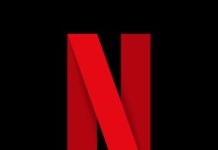NEWS ANALYSIS
With DirecTV CEO Bill Morrow‘s announcement early Monday that it will be acquiring the direct broadcast satellite assets of EchoStar, resulting in a merger between Dish and DirecTV, some may be wondering if the combination of the two businesses — therefore resulting in only one DBS provider — will pass muster with regulatory agencies.
If the combination of Sirius Satellite Radio and XM Satellite Radio is any guide, the answer is yes — the deal will go through.
In February 2005, on his first quarterly earnings conference call since becoming Sirius Satellite Radio CEO, Mel Karmazin deflected rumors of a merger with XM Satellite Radio as he insisted advertisers will follow Howard Stern to Sirius Satellite Radio in 2006.
By June 2006, questions on whether or not Sirius and XM would merge persisted. Speaking to Radio & Records, one unnamed source at the FCC asked if a combination would pass muster pointed to a satellite television proposal — EchoStar’s proposal to acquire DirecTV.
The FCC said no to that proposal to within 60 days of it being made.
Now, nearly two decades later, with streaming video the consumer choice thanks to OTT platforms and YouTube, a similar determination would be hard for the Commission to justify. And, the eventual merger of Sirius and XM only bolsters Morrow and his team.
It was on Presidents’ Day 2007 that Sirius and XM unveiled their merger plans. The Department of Justice took a good look at the proposed transaction — one that took 13 months.
On March 24, 2008, “after a careful and thorough review of the proposed transaction,” the DOJ’s Antitrust Division concluded, “[T]he evidence does not demonstrate that the proposed merger of XM and Sirius is likely to substantially lessen competition, and that the transaction therefore is not likely to harm consumers.”
In fact, the Antitrust Division ruled that the evidence did not show that the merger would enable the parties to profitably increase prices to satellite radio customers for several reasons, including a lack of competition between the parties in important segments even without the merger; the competitive alternative services available to consumers; technological change that is expected to make those alternatives increasingly attractive over time; and efficiencies likely to flow from the transaction that could benefit consumers.
Those are the very arguments DOJ could potentially make today between Dish and DirecTV.
Still, the Sirius XM merger did not come without its detractors on Capitol Hill. Sen. Sam Brownback (R-Kansas) in April 2008 urged then-FCC chairman Kevin Martin to “reverse” the Department of Justice’s course on its approval of the Sirius XM merger and “protect the best interests of consumers by correcting DOJ’s mistake.”
In a toughly worded, two-page letter sent to the FCC, Brownback said the Commission “must not endorse the department’s flawed finding that XM and Sirius do not compete with each other because it is too expensive for existing subscribers to switch providers. Essentially, the department rewarded XM and Sirius for their audacious refusals to comply with an FCC requirement to manufacture consumer-friendly interoperable radios.”
Ultimately, on July 28, 2008, Sirius and XM became one.
Now, Morrow is piloting a similar course for DirecTV, one that should ultimately be smooth but not without choppy seas ahead.




